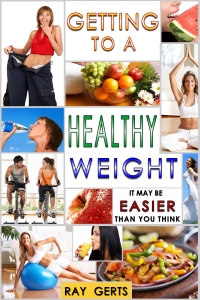This is a post from MedicineNet and it's important that you read and understand that the whole idea of "rapid weight loss" not only doesn't work but it's dangerous. You might have friends that lost weight with pills they saw advertised on TV or the internet but just because they had no side-effects doesn't mean you won't. Besides the possible side-effects people always seem to put the weight back.
Why is that? The programs are designed to give you temporary weight loss, that's all. Because they want you to buy more at a later date and keep you as a customer. Anyone selling anything to the public has to sell a product that people will like and continue to buy, so diet pills were never made to give you permanent weight loss.
So many marketers promise "fast weight loss" it's difficult to sort through them all.
Most rapid weight loss pitches fall into these categories:
Starvation Diets
Beyonce popularized the so-called "master cleanse" diet: water, lemon juice, maple syrup, and cayenne pepper. Variations of these diets have been around since at least the 1950s. They often also promise "detoxification" through colonics or enemas. These diets are very temporary and sap the strength from your body.
Diet Pills and Supplements
Dozens of diet supplements promise to speed weight loss. Generally, they claim either to block absorption of nutrients, increase metabolism, or burn fat. All these methods are dangerous. If you feel you need diet pills ask your doctor for a prescription.
Very Low-Calorie Diets (VLCDs)
One proven method of rapid weight loss is the medically supervised very low-calorie diet (VLCD). Most of what is known about rapid weight loss comes from studies of people on these diets. You can do a very low calorie diet by going Vegan, but you have to take supplements to get the extra nutrients your not getting from vegetables. Remember, being a Vegan is a full-time lifestyle.
Creams, Devices, and Magic Voodoo Spells
There seems to be no end to the dubious ideas promoted in the name of rapid weight loss. Most promise to replace diet or exercise. None of this work.
Exercise Equipment can help you lose weight but you have to use the equipment, most people stop using the machine after a few weeks. You can't exercise away a bad diet. So if all you have to do is walk to lose weight, why spend money on a machine to walk.
The U.S. Food and Drug Administration (FDA) does regulate dietary supplements; however, it treats them like foods rather than medications.
The FDA also does not regulate claims made by over-the-counter weight loss products. Unlike drug manufacturers, the makers of supplements don’t have to show their products are safe or effective before selling them on the market. This means that dietary supplements do not need approval from FDA before they are marketed.
Aside from the very low-calorie diet and weight loss surgery, no other product, pill, or diet has been proven to work for fast weight loss. The prescription drug Orlistat can help, but it works slowly and only with diet and exercise. Orlistat is marketed as Xenical. Labeling for Orlistat notes that it can cause severe liver damage.
In any rapid weight loss program, what really burns fat is not a pill or type of food. It's the drastic reduction of calories, combined with exercise.
Rapid weight loss diets can have ill effects, but so does obesity. For this reason, very low-calorie diets (VLCDs) are considered a reasonable weight loss option for people with obesity (having a body mass index (BMI) greater than 30) needing rapid weight loss for a specific purpose such as weight loss surgery .
VLCDs are doctor-supervised diets lasting several weeks. The meals are nutritionally balanced, but expensive -- people can end up spending thousands of dollars over time. VLCDs safely produce a loss of 15% to 25% of body weight in 12 weeks. That's for those who finish the program: 25% to half of people don't complete the program. Weight returns when the diet is stopped and happens rapidly; some experts say its best to take a more sustainable approach to weight loss comparable to that of regular diets.
Most people seeking rapid weight loss, though, usually do it on their own. Frequently, it's to achieve a short-term goal, such as fitting into a dress, or looking good at the beach.
Starving yourself is certainly not a good idea. But if you're otherwise healthy, a brief period of extreme calorie restriction isn't likely to hurt you. You should tell your doctor what you're doing, and be sure to include protein in your diet (70 to 100 grams per day). Take a multivitamin, and eat potassium-rich foods (tomatoes, oranges, and bananas)
Also, remember that crash diets rarely help you achieve a sustained, healthy weight. Most people put the pounds right back on.
If you really want to lose your body fat than look for my e-books at the websites listed below. You'll get information on Healthy eating, exercise, and diet. Instead of spending hours on the internet reading dozens of posts, you can save time by picking up one of my e-books.
There are two e-books. “How Bad Do You Want To Lose Weight?” is available at all the online bookstores selling for $1.99. Go to any of the websites below and search the title to find my e-book. This book gives you all you need to lose weight without spending money on gym memberships, diet plans or meal plans. Look for my book. at Amazon.com, B&N.com, iBooks, Kobo.com, Scribd.com, or Gardner Books in the U.K.
My new e-book is available on Smashwords.com, just type “getting to a Healthy Weight” in the search box at the top of the home page.







